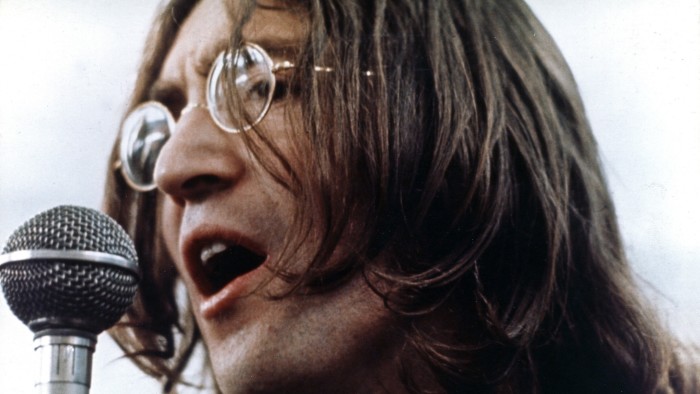John Lennon: Murder Without a Trial — new documentary pieces together what happened on December 8 1980

Roula Khalaf, Editor of the FT, selects her favourite stories in this weekly newsletter.
It’s the afternoon of December 8 1980, and John Lennon is talking excitedly about the future in an interview for RKO radio. “My work won’t be finished until I’m dead,” he says, “and I hope that’s a long, long time”. It would be 12 hours.
The new Apple documentary John Lennon: Murder Without a Trial revisits that night in New York when the former Beatle was shot outside his home in the Dakota building by Mark David Chapman. While many details of the killing are already deeply embedded in the cultural consciousness — and many similar documentaries already exist — this three-part series delivers an impressive array of new first-hand testimonies and hitherto unpublished investigative materials.
It begins with that final interview — imbued now with awful dramatic irony — before piecing together the events that followed through the recollections of key witnesses, first responders and medics. All stirringly describe the incomprehensible experience of seeing one of the world’s most famous people lie prone and bloodied in front of them. Some are still evidently in shock.
Accounts of “where, what and when” are vivid but eventually repeat themselves. The thornier questions of “who” and “why”, however, elicit plenty of debate among the detectives, psychiatrists and lawyers, who each bring their own view on whether Chapman had schizophrenia and was only fitfully aware of his actions, or was simply a cold-blooded, fame-craving killer. Only when conspiracy theories linking Chapman to the CIA are brought up does the series begin to veer towards unseemly sensation.
Chapman himself provides no conclusive answers. In grimly fascinating recordings from a police interrogation he mentions both a consuming desire to be a “somebody” and a feeling of having been someone else when he pulled the trigger. Either arguably throws the series itself into question. If Chapman was seeking notoriety, then a show such as this only serves to indulge him; if he was afflicted with psychosis, then attempts to analyse his private life or to identify motives are not only moot, but misleading.
Ultimately, between Chapman’s elusiveness and the rather distancing, reverential manner with which Lennon is discussed, there’s little here that feels revelatory, immediate or intimate. And while it does inevitably feed our morbid curiosity, there’s something particularly depressing about being re-confronted with his death just weeks after he was given new life on the “last Beatles song” “Now and Then”.
★★★☆☆
On Apple TV+ now
Comments